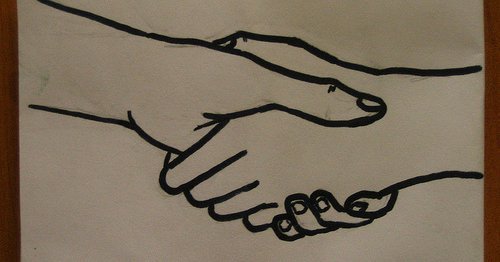The answer to the crisis, uncoordinated and taken under marketing pressure, lacks vision. The lesser rumour plummets exchange rates and pressure adds up on the Euro. From now on, all newspapers talk about the “survival” of the Euro zone – or not – in a very short term.
During this time, negotiations between carpet sellers are worse than ever. One of the conditions for the Greek financial recovery would be if the Greeks continued to buy incredible amounts of French or German production armaments - with the money which is lent to them of course!
The austerity measures risk immersing the country even more into the recession as the European Commission has confirmed – a contraction of 3% of GDP in 2010 – and of exploding the black market with the brutal increase of taxes on the consumption. All the more so that these rigorous effects are immediately taken away by the cost of market debts. The general strikes and the violent demonstrations together with their share of desperation and anger were predictable. One should obviously modernise the Greek State, but not in such a brutal manner. Nobody has proposed solutions of long-term booming nor intelligent investments, as though everything was lost in advance.
The decision-makers and journalists speak little about the other urgency, that of the pure and simple disintegration of our European social model.
The decision-makers and journalists speak little about the other urgency, that of the pure and simple disintegration of our European social model. In Spain, Portugal, England, France and all over Europe one prepares such national rigour plans while pointing a finger to the Greek case in order to prepare public opinions.
Saving our European Specificity
Of course, there are many who want to claim that the European social model is a myth. There is however, at least a European specificity, in spite the incredible diversity of national systems. Many State Unions are heirs to the German model of growth of Chancellor Erhard, founder of the Mark, who recognises the use of the social in spite of the imposition of the market economy.
France and Latin countries have opted for a more combined economy while reserving certain domains of the economy to state control. This predominance of worry of the social during the after-war period has fallen into abeyance of the 1980s. The reforms of Thatcher and Reagan have afterwards favoured the passive acceptance of a more unequal growth model. It is a pity that Milton Friedman isn’t around to assist us to the striking result to his theories. The European specificity however, has managed to get by. We always benefit from social security, from universal health care, that which Barack Obama tempts to put in place despite the explosion of deficits. We gain from unemployment benefit, familial politics in order to face ageing of the population and finally from the most protective social right in the world.
What economists call “the automatic stabilisers” has allowed Europeans to feel the effect of the economic crisis in a lighter manner than in the United States. Aren’t these stabilisers therefore part of the solution? The worry of the social should form part of the long-term economic model, inevitably European, on which one should reflect without further delay. More globally, the regulations of world finance, where the discussion had started in the Bâle committee, should take into consideration this dimension and not remain in this territory purely amoral.
Deciding to destroy what remains of our last bastions is deciding to abandon the weakest and the least weak.



Follow the comments: |
|
